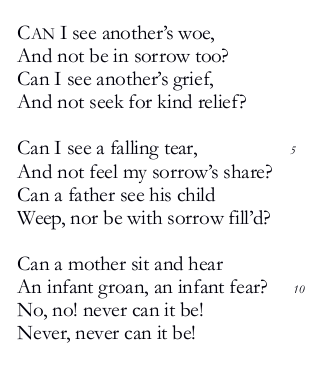I recently attended an evening at my eldest son’s school to discuss his GCSE options. At that evening I learned that the English literature GCSE will from next year only contain plays, novels, poetry, and prose written by English authors (I’ve since discovered a couple of Scots on the list). My initial response was to be shocked, disappointed, and a bit disgusted. It seemed to me that such a selection seemed profoundly parochial and marked an insular, nationalistic attitude of closed-minded superiority. There’s a vast body of brilliant English-language literature from across the world – to rule out anything written by an Irish, Australian, Canadian, American, African, Caribbean, or an Indian author (for starters) is a bizarre decision and leaves an impoverished curriculum.
The effects of a decision like the one taken on English Literature are wide ranging. It is through literature, poetry, and art that we cultivate the imagination. Cultivating the imagination is hugely important in order to promote flourishing citizens and human progress. When we reason on both moral and non-moral matters, we do so by constructing mental representations of alternate scenarios. We imagine how things might be, or how they might have been. We imagine and compare potential outcomes in order to evaluate them. We look back on the past and consider what might have been done differently; on the basis of this we make judgements about praise or blame, shame or pride. When we imagine the sort of world we want to live in, we construct our imagined endpoint and our route to travel to it using a set of imaginative building blocks. It’s hard to imagine things out of nowhere – we must rely upon what we know to some degree, combining elements and making new things from them. Think of the way mythical creatures like the unicorn, hippogriff, dragon, Pegasus etc. – those beings are constructed out of elements we already have access to. In much the same way, we reason about how society ought to be by drawing upon the experiences we have. These we draw from our history and culture. We also use our imagination when we experience sympathy for the plight of others. When we see another suffering, we imagine how we would feel were we in their shoes, and if we judge that we too would suffer then we sympathise. Our sympathetic imagination creates a connection that allows us to recognise the humanity in others.
The decision to limit the GCSE curriculum marks the stamp of the conservative mindset on education. It marks the conservative belief that the persistence of historical practices is evidence that they are good or right, and the belief that there is a special value in place-bound communities. Conservatives encourage the study of literature in order to instil respect for the history of a place and its culture. The change to the GCSE limits the range of possible worlds our children can imagine and the set of experiences of others that they can access. By limiting the range of literature to material written only on the shores of England and Scotland, the government stunts the ability of our children to exercise their imagination and thus to develop their powers of reasoning, sympathising, and becoming good moral agents.
On the surface, a change to the scope of the literature taught to our children is a small thing, but its potential impact when combined with other social and policy influences is extremely troubling. Those of us who are parents and guardians have a duty to broaden the imagination of our children by introducing them to the lives and experiences of others from outside of our borders. With that in mind, I’d welcome any suggestions readers might have.

